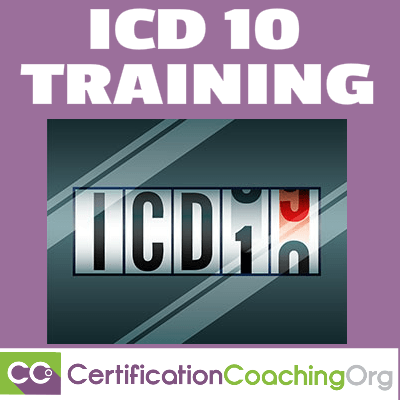After months, and, in some cases, years of training, coders have finally begun to code in ICD-10. However, just because ICD-10 officially went live on Oct. 1, doesn’t mean that ICD 10 training should cease. In fact, just the opposite is true.
Remedial ICD 10 training will be critical during the first six months post-implementation. This is the time during which mistakes and deficiencies will become more apparent. It’s also the time during which organizations will see first-hand how payers plan to process the more specific ICD-10 codes. Ongoing coder training that evolves over time commensurate with denials and new Coding Clinic references is an essential ingredient of the recipe for long-term compliance. Source: http://www.icd10monitor.com/enews/item/1511-icd-10-education-shouldn-t-end-after-october-12-2015
According to Paul Straffer from ICD 10 Monitor, the following are several strategies that coding managers and directors can use to ensure ongoing coder training in ICD 10.
ICD 10 Training Tips for Coding Managers and Directors:
1. Solidify the budget. Very few hospitals have budgeted for training beyond Oct. 1. However, there’s no reason to stop training coders simply because we’ve officially made the transition. Now that organizations are operating in a live ICD-10 environment, many new issues may come to light. This is the perfect time to mitigate those problems and perform corrective actions. Managers and directors should budget for additional education (beyond what coders typically receive as part of their continuing education) until at least the end of the first quarter 2016.
Related Article: ICD 10 Training — 4 Things You Need To Know
2. Know when to provide the training. Everyone’s time is valuable, and managers need to think about how to provide training with minimal impact on productivity that is already lower than ideal. The most efficient way to approach training is to incorporate case discussions into weekly coder meetings. For example, ask coders to code a case for the first 15–30 minutes of the meeting. Then come together for the remainder of the meeting to discuss the codes assigned. An abbreviated version of this exercise would be to simply code the operative report to ensure that the PCS code is correct. Weekly coding meetings can also be a time during which specific ICD-10 questions are posed and discussed. Coders are accustomed to carving out time for these meetings, thus the meetings don’t add an additional burden to their workload.
However, in some cases, it’s better to provide individual coder training. For example, if one coder struggles with a particular root operation, don’t spend productive time making all coders review that root operation. Instead, compile educational references and materials that the coder can study on his or her own time. These materials could include articles, specific references to the coding guidelines, or specific Coding Clinics. Reassess the coder after he or she has had a chance to review the materials.
Related Article: 3 Must-Have ICD 10 Training Online Resources
3. Stockpile anatomy and physiology references. Not all coding education must be provided in a formal setting. Opportunities for learning must also be available on an as needed basis as coders are coding each record. This is particularly true for PCS that requires a more robust knowledge of anatomy and physiology than ever before. For example, consider a coder coding a cardiac catheterization who is unsure of the anatomy of the heart. He or she must be able to immediately access information about that procedure and the corresponding anatomy to ensure coding accuracy. HIM departments must invest in clinical resources so coders have this information at their fingertips.
Read full article: http://www.icd10monitor.com/enews/item/1511-icd-10-education-shouldn-t-end-after-october-12-2015
ICD 10 Training with CCO – Free ICD-10 Proficiency Webinar — Video

ICD 10 Training Courses for Medical Coders
At CCO, we have various ICD 10 training courses and ICD 10 training certification to help medical coders like you prepare for the ICD 10 Proficiency Assessment Exam. Not only that, if you want to learn ICD 10 and needs more practice before taking the exam or get real-world experience and build your pro ciency by letting you code real-world medical charts OR learn about inpatient procedure coding using ICD-10-PCS then you’ve come to the right place. Definitely check out these ICD 10 training online courses:
![[CCO] Certification Coaching Organization LLC [CCO] Certification Coaching Organization LLC](https://www.cco.us/wp-content/uploads/2015/05/CCO-Logo-2015-d3-500px.png)
